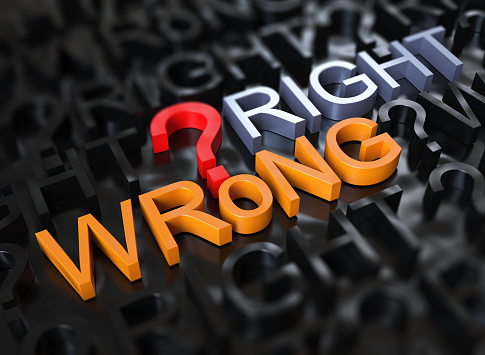Is Therapy Ever the Wrong Treatment Option?
There are many who affirm that all people should seek therapy. Although therapy may be and is beneficial for many people, it’s just like other forms of health treatment, it may not be the ideal treatment for all.
To begin, everyone needs to be aware that beginning therapy doesn’t mean that by simply attending every week, you’ll feel better every time you go out the door or finish off an online health session. Therapy is a long-term commitment however, it’s worth the effort. Studies show that over 70% of those who go to therapy have improvements. 1
Understanding the signs that therapy may not be the best option for you is just as taking care of yourself as going to therapy is and you should read this article to learn the signs that indicate therapy isn’t the best option for you at the moment. (FYI even though now is not the best time to seek therapy does not mean that it will never be.)
When Therapy Is the Wrong Treatment Option
There are several reasons why therapy may not be the best treatment option. These include the cost of therapy, time, or simply not prepared to change your ways yet. Find out why therapy may not be the best option for you.
Money
Financial limitations could be the main obstacles in the path to therapy. Although there are cost-free and free therapy programs and services accessible, the reality is that therapy isn’t cheap.
But, research has shown that this could go both ways. Studies conducted on England 2 revealed that therapy can be as much as 32 more more effective in making people happy than an increase. (This would be, in all likelihood, for a population with needs that are already being met).
A study in Kenya Three times in which one group with low income received cash while the other group with a low income received therapy demonstrated that those who received money did better psychologically than those who received therapy. Stress from financial situations can trigger mental health problems. In cases of low income, therapy may not be beneficial if it is not able to deal with the systemic imbalances that cause poverty.
Time
If you’re a stressed person with many things to do–and without anything you are able to remove, trying to make time to go to therapy every week, even through telehealth, could be more than what you have the capacity for.
Too Angry
It is possible to be angry enough to warrant therapy! If you’re facing a problem that’s in the process of being resolved or occurred recently and is extremely emotionally traumatic in your case, you may not be ready to deal with the situation if you’re not prepared to let go of that anger.
If you’re experiencing intense anger as the idea of working on it makes you angry You might not be in the right place to go through therapy which is better than nothing! The anger you feel is keeping your safe even though you’re not really ready to experience the emotions.
When Therapy Could Even Be Dangerous
While in general therapy is generally secure, there are a couple of distinct instances where therapy may do greater harm than benefit, specifically because therapy could cause you to feel a little more uncomfortable before you start feeling better when you start exploring topics that you’ve never thought about prior to.
Intimate Partner Violence
In the case of intimate violence between partners and abuse, it can be risky for one to go to therapy due to reasons like the person who is the victim being aware of the credit charge and becoming angry or a therapist trying to convince clients to make a change in their lifestyle and quit the relationship.
Removing the abuser is the moment that the person who survived may be the most vulnerable, fiveso it is essential to create a thorough plan.
Suicidal Ideation or Self-Harming
“When there are high levels of suicidal ideation or self-harming behaviors,” states Racine Renee Henry doctoral student, “it may actually be harmful to start therapy because there’s not enough risk management in place.” The Dr. Henry notes that other sources are also needed.
Severe Mental Illness
The term “severe” refers to mental illness can be defined by anything that is included in the SCID (structured clinical interview) (SCID) of DSM-5 (SCID) , which includes:
- Schizophrenia
- Schizophrenia or schizophreniform or schizoaffective disorder
- Major depressive disorder, recurrent
- Bipolar I Acute manic
- Bipolar 1. Or Bipolar II Depressed
- Adult ADHD
If you suffer from one of the serious mental diseases listed above, and you’re experiencing an acute phase and/or are not on medications, therapy probably isn’t the best option at this time, according to Henry. “However, if you are on medication, you shouldn’t be without a therapist.” Research has shown that the most effective combination is therapy as well as medicine. 6
What If You Decide That Therapy Isn’t Right For You at This Time?
If you realize that therapy might not be right for you right now, there are many resources out there that can help you manage your own mental health if you’re otherwise feeling relatively stable and safe, but here are a few that come therapist-recommended by Dr. Henry.
Recognize What Your Baseline Is
Henry. Henry recommends thinking about what your ideal baseline could be. Also, think about your self in a state of calm and peace.
To determine what you are aiming for, you should ask yourself these questions:
- What’s my diet?
- What time should I get to bed?
- Do you take a shower every day? bathe?
- With whom am I spending my my time with?
She suggests either sharing the information with someone else or writing down the things you’re thinking of doing for yourself, and remembering how much you’re off from the baseline.
